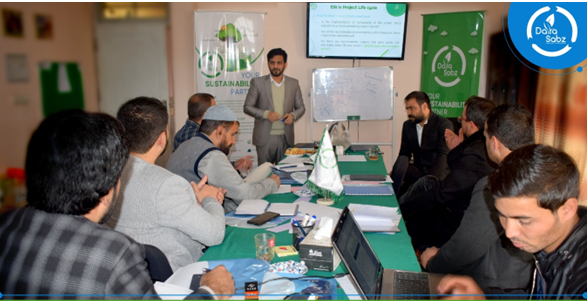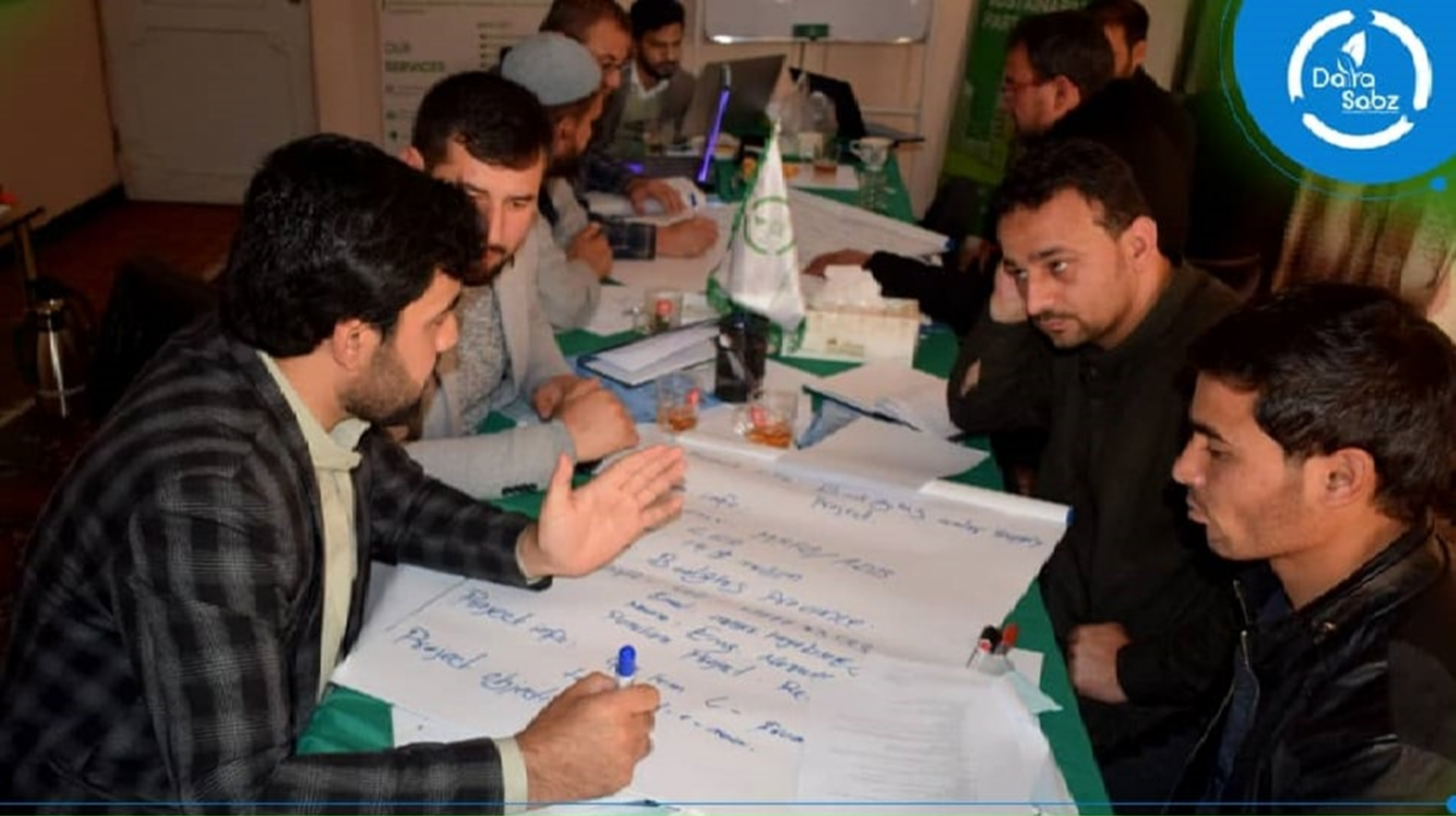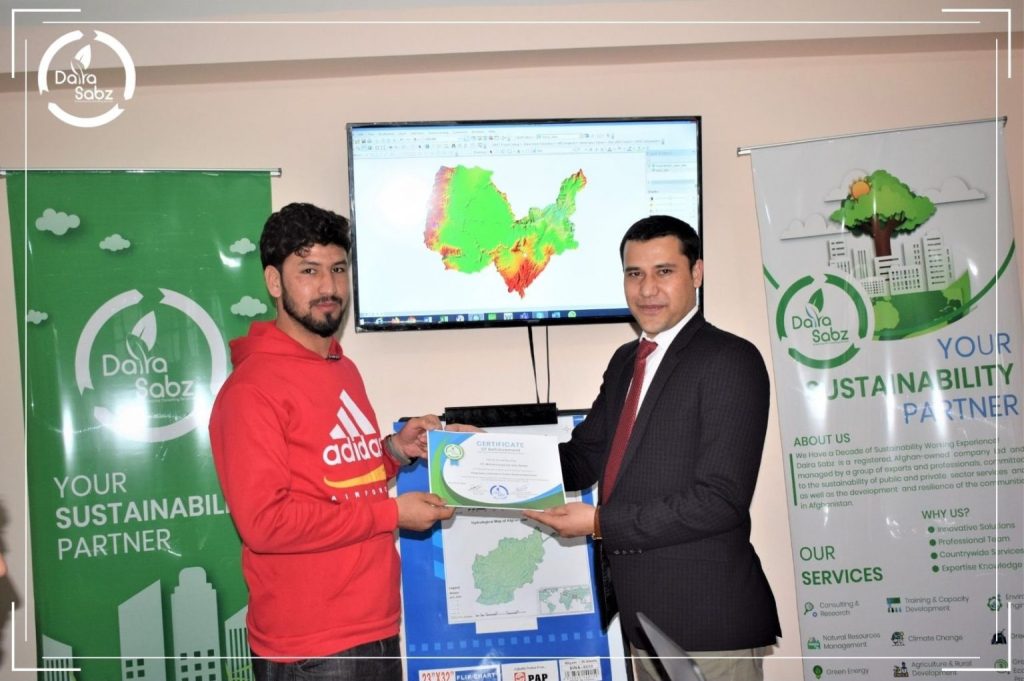- Afghanistan: House #49, Karte 3, Sixth District of Kabul City, Kabul, Afghanistan
- Germany: Königstraße 10C, 70173 Stuttgart, Germany
Training and Capacity Development

Capacity Development and Training Services
At Daira Sabz Consulting and Engineering Group, our Capacity Development Department is committed to building the capabilities of individuals, organizations, and institutions to think systemically, act inclusively, and operate sustainably. We focus on empowering communities and institutions in Afghanistan and internationally to drive forward the green transition, achieve climate resilience, and contribute to the Sustainable Development Goals (SDGs).

🌱 Our Vision
We believe capacity building is key to lasting change. Through structured training, mentoring, field-based learning, and applied professional development, we foster a new generation of environmental professionals, policymakers, and institutions that can manage complexity, innovate responsibly, and lead sustainable development.
📚 Our Training and Capacity Development Offerings
Our services are organized under four core divisions:
- Training Courses and Workshops
- Professional Courses and Skills Development
- Short Courses and Microcredentials
- Environmental Event Planning and Management
We offer three tailored packages to suit various audiences:
- Expert Package – Designed for students, researchers, and specialists
- Corporate Package – For NGOs, private sector, and government institutions
- Societal Package – For community groups, schools, and general public awareness
🎯 Topics and Thematic Areas
1. Pollution Management
- Types, causes, and impacts of pollution (air, soil, water, noise)
- Pollution prevention, mitigation technologies, and waste management
- Global and national frameworks (e.g., Paris Agreement)
- Global Framework for a Pollution-free Planet

2- Climate Change
- Climate science, policy, and negotiations (UNFCCC, IPCC, NDCs)
- Climate adaptation and mitigation (Community-Based, Nature-Based Solutions)
- Climate finance, smart agriculture, and urban climate resilience
3- Disaster Risk Reduction (DRR)
- Risk identification and hazard mapping
- Early warning systems and emergency planning
- Gender-responsive and community-based DRR
4- Agriculture & Rural Development
- Value chain development and agribusiness
- Climate-smart agriculture and irrigation planning
- Land use and food security strategies
5- Environmental Management & Monitoring
- Environmental and Social Impact Assessment (ESIA)
- Environmental Management Systems (EMS – ISO 14001)
- Monitoring and Evaluation for environmental projects
6- Natural Resources
- Forest, rangeland, and watershed management
- Water resources and biodiversity conservation
- Carbon footprint, offsetting, and environmental governance

7- Sustainable Development
- SDG integration in policies and programming
- Green economy, sustainable cities, and eco-tourism
- Corporate social responsibility and ESG training
8- Sustainability Reporting & Governance
- GRI Standards, ESG Frameworks, SDG tracking
- Supply chain sustainability and reporting
- Sustainable procurement and investment practices
9- Engineering and Mining Sector Training
- Project feasibility and technical assessments
- Mine safety and environmental safeguards
- Sustainable infrastructure and green construction practices
- Engineering ethics and regulatory compliance
10- Business Solutions and Organizational Development
- Strategic planning and systems thinking
- Financial and operational sustainability for businesses
- Corporate governance and leadership for SDGs
Professional and Technical Courses
- GIS & Remote Sensing (Basic and Advanced)
- R for Data Science and Statistics
- Research Methodology and Academic Writing
- SPSS and Kobo Toolbox for Data Collection
- Sustainability Reporting and Systems Thinking
Short Courses
- Research Paper Writing and Getting Published
- Proposal Writing and Fundraising for Environmental Projects
- Environmental Communication and Advocacy

🎤 Environmental Event Management
We offer professional event management services for:
- Conferences, workshops, roundtables, and symposiums
- World Environment Day and international environmental campaigns
- Hybrid events with venue sourcing, registration, logistics, and communication support
Services include:
- Planning, budgeting, and pre-event coordination
- Online registration and delegate management
- Abstract submissions and sponsor management
- Onsite and post-event reporting
👥 Our Clients
We support a wide spectrum of stakeholders:
- Government ministries, agencies, and municipalities
- NGOs, development partners, and donors
- Universities and academic institutions
- Corporate entities and local businesses
- Community-based organizations and civil society groups
🔗 Featured Projects and Success Stories
Why Choose Daira Sabz Capacity Development?
- International experience, local relevance (operations in Germany and Afghanistan)
- Certified training programs and methodologies
- Multilingual delivery in international and national languages
- Expert trainers from academia, government, and international organizations
- Proven impact across sectors from ESIA training to green skills workshops
📩 Interested in building your team’s capacity? Contact us at info@dairasabz.com
